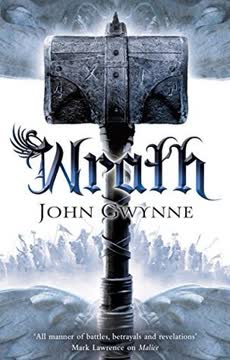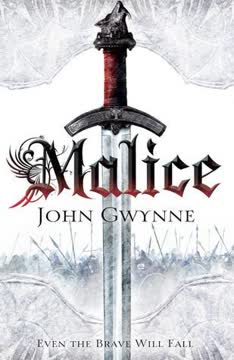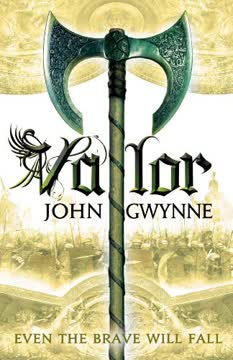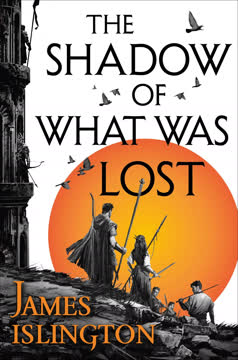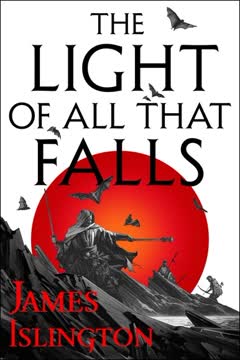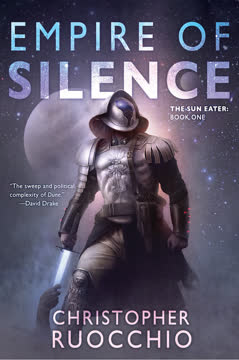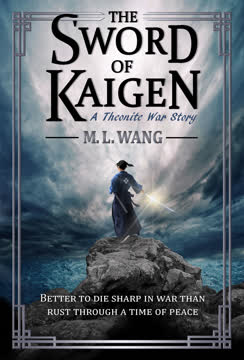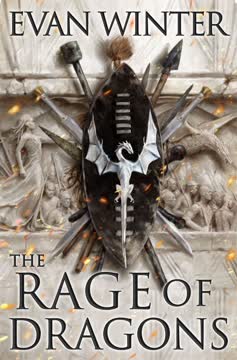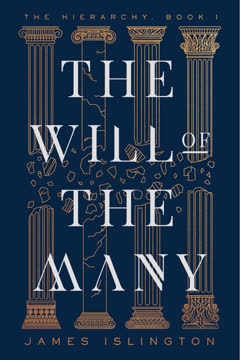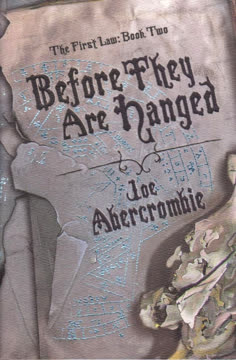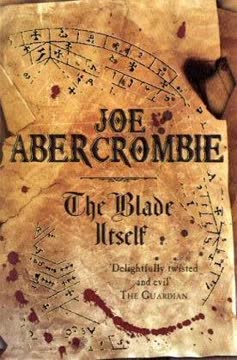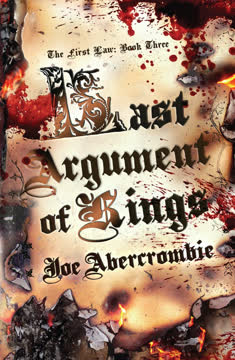Plot Summary
Shadows Over Drassil
The Banished Lands are fractured, haunted by prophecy and the looming threat of the God-War. Corban, once believed to be the Bright Star, is a fugitive, his friends scattered, his faith in prophecy shattered. Drassil, the ancient giant fortress, has fallen to Nathair and Calidus, who now wield the power of the Seven Treasures and command monstrous Kadoshim. Survivors of Corban's warband flee into the wilds, hunted by demons and traitors. The world is darkening, hope flickering as the forces of light and darkness gather for a final reckoning. The stage is set for the last, greatest battle.
Broken Oaths, Broken Kings
Nathair, once a friend, is revealed as the Black Sun, champion of Asroth, his ambition and pride leading him to betray all he once loved. Veradis, his loyal first-sword, is torn between duty and conscience, ultimately choosing to stand against his king. Across the lands, rulers fall—betrayed, murdered, or corrupted. Edana, Queen of Ardan, rises from exile to rally her people, while Rhin, Queen of Cambren, schemes and murders to claim the Treasures. Oaths are broken, friendships tested, and the cost of loyalty grows ever steeper as the world spirals toward chaos.
The Gathering Storm
Corban's friends—Gar, Cywen, Coralen, Dath, Farrell, and others—risk everything to find him, braving giants, draigs, and haunted forests. Giants and men, once enemies, forge uneasy alliances. The Jehar, Benothi, and Kurgan giants, the remnants of Isiltir and Tenebral, and outlaws from Ardan and Domhain all gather, drawn by the promise of vengeance or hope. The Seven Treasures become the focus of every faction, each believing their possession will decide the fate of the world. The storm of war gathers, and all paths lead to Drassil.
Wolves and Giants
Corban, wounded and captive among the Jotun giants, forges unexpected friendships with Varan and Sig, learning the complexities of giant honor and tradition. Storm, his wolven companion, hovers between life and death, her fate mirroring the world's. The Benothi and Kurgan giants, led by Ethlinn and Balur, seek unity after centuries of division. As the God-War looms, ancient grudges must be set aside. The wolves and giants—once symbols of fear—become the hope of resistance, their strength and loyalty vital in the coming battle.
The Price of Prophecy
Corban learns from Meical that the prophecy of the Bright Star and Black Sun was a Ben-Elim ruse, a manipulation to draw out Asroth and the Kadoshim. The revelation devastates him and his followers, who must now find purpose beyond prophecy. Meical's betrayal is a wound that will not heal, but Corban chooses to fight not for destiny, but for love, vengeance, and the hope of a better world. The cost of prophecy is measured in blood and heartbreak, and the survivors must decide what they truly believe in.
The God-War Ignites
Calidus, wielding the Seven Treasures, opens the cauldron, unleashing Kadoshim into the world. The Ben-Elim, angelic warriors, descend to oppose them, turning the skies above Drassil into a battlefield of wings and steel. On the ground, shield walls crash, giants charge on armored bears, and draigs rampage through the ranks. Betrayals and last stands abound—Maquin hunts Lykos for vengeance, Edana and Conall unite Ardan and Domhain, and the fate of the Banished Lands hangs by a thread.
Blood and Betrayal
Friends and foes fall in the chaos—Gar, Corban's mentor and father-figure, is mortally wounded; Brina, the healer, is slain by Calidus; Laith, the giantling, dies defending her friends. Rafe, twisted by the starstone cup, betrays and murders, while Morcant and Rhin's other lieutenants meet bloody ends. Maquin finally kills Lykos, but at the cost of his own life. The price of victory is paid in blood, and the survivors are forever changed by what they have lost.
The Shield Wall Shatters
Veradis and Nathair, once brothers-in-arms, face each other in a final, tragic duel. The legendary shield wall, symbol of Tenebral's might, is broken by the ingenuity of giants and the courage of the outnumbered. Draigs, ants, and fire turn the tide, but the cost is immense. Nathair, consumed by pride and regret, falls by Veradis's hand. The age of kings and shield walls ends, and a new world, uncertain and fragile, begins to dawn.
The Cauldron Opens
Calidus and Rhin, using blood and the Seven Treasures, open the cauldron, unleashing Asroth and the Kadoshim in their true forms. The great hall of Drassil becomes a hellish arena as Ben-Elim and Kadoshim battle for supremacy. Corban and his friends, bound by Calidus's sorcery, can only watch as the world teeters on the brink of annihilation. The final hope lies in the spell of Unmaking, a desperate gamble to destroy the Treasures and close the gateway forever.
Wrath Unleashed
Asroth, now flesh, duels Corban in a battle of will and steel, while Meical and the Ben-Elim fight to contain the Kadoshim. Storm, battered but unbroken, saves Corban at the last moment. Gar sacrifices himself to save Corban, dying in his arms. Cywen, guided by Brina's last teachings, completes the spell of Unmaking, hurling the Treasures into the cauldron. The resulting explosion traps Asroth and Meical in a prison of iron, ending the God-War but leaving scars that will never heal.
The Last Stand
The battlefield is a wasteland of the dead—kings, giants, heroes, and monsters alike. The survivors mourn their fallen: Gar, Brina, Halion, Krelis, Maquin, and so many more. The Ben-Elim and Kadoshim are scattered, their power broken. The Seven Treasures are gone, the prophecy fulfilled in a way none expected. The world is free, but the price is almost too much to bear.
The Unmaking
With the Treasures destroyed and the cauldron sealed, the gateway to the Otherworld is closed. Asroth and Meical are entombed together, their eternal struggle frozen in iron. The Ben-Elim, now flesh, must find their place in the world they sought to protect. The Kadoshim, leaderless, are hunted to extinction. Corban, wounded but alive, is resurrected by the love and loyalty of his friends. The survivors must decide what kind of world they will build from the ashes.
Ashes and Aftermath
The survivors bury their dead, build cairns, and mourn. Old wounds are tended, friendships renewed, and new bonds forged. Edana and Conall unite the west, Ethlinn and the giants reclaim Drassil, and Corban dreams of a school where all peoples can learn the arts of war and healing. The world is changed forever, but the promise of peace and unity glimmers on the horizon.
The Cost of Victory
Veradis, haunted by the death of Nathair and Krelis, seeks purpose in a world without war. Cywen, scarred by magic and loss, finds solace in healing. Camlin, once an outlaw, becomes a trusted counsellor. The survivors must learn to live with what they have done and what they have lost, forging a new path in a world that will never be the same.
A New Dawn
Corban, Cywen, and their friends leave Drassil, seeking to build a new home and a new way of life. The giants, Ben-Elim, and men agree to share Drassil and hunt the last Kadoshim together. The prophecy is fulfilled not by destiny, but by the choices, sacrifices, and love of ordinary people. The world is free, but the future is unwritten. As Storm howls her mourning and hope to the sky, the survivors ride into the unknown, determined to honor the fallen and make the most of the freedom they have won.
Characters
Corban
Corban begins as a fugitive, burdened by the false prophecy of the Bright Star, and ends as the true leader of the Banished Lands' resistance. His journey is one of self-discovery, moving from manipulated pawn to a man who fights for love, friendship, and justice. His relationships—with Gar, Cywen, Storm, and Coralen—anchor him, and his compassion and courage inspire loyalty in all who follow him. Corban's greatest strength is his refusal to be defined by prophecy or fate; he chooses to fight for what is right, even when hope seems lost. His final victory is not just over Asroth, but over the darkness within himself.
Cywen
Cywen's arc is one of resilience and transformation. Once a blacksmith's daughter, she becomes a skilled healer and a powerful wielder of the old magic, learning from Brina and risking everything to save her friends. Her love for Corban and her loyalty to their cause drive her to acts of great bravery, including the completion of the spell of Unmaking. Scarred by loss and trauma, Cywen's journey is about finding her own strength and purpose beyond her brother's shadow, ultimately becoming a symbol of hope and healing in a broken world.
Gar
Gar is the emotional anchor for Corban and many others, a Jehar warrior who sacrifices everything for those he loves. His wisdom, discipline, and unwavering loyalty shape Corban into the leader he becomes. Gar's death is one of the most devastating losses in the story, but his teachings—especially about mastering anger and fighting for love—echo through the survivors. Gar's legacy is a testament to the power of chosen family and the quiet heroism of those who stand in the shadows.
Veradis
Veradis is Nathair's loyal friend and battlechief, but his journey is defined by the painful choice to break with his king and stand for what is right. Haunted by guilt and loss, Veradis becomes a symbol of conscience and integrity, leading the resistance's shield wall and ultimately slaying Nathair in a tragic duel. His struggle with loyalty, honor, and self-forgiveness is deeply human, and his friendship with Corban and the others offers a path to healing and hope.
Nathair
Nathair's arc is a study in ambition, pride, and the corrosive power of prophecy. Once a friend and hero, he is seduced by Calidus and the promise of greatness, becoming the Black Sun and betraying all he once loved. His final confrontation with Veradis is both epic and heartbreaking, a reckoning for his choices. Nathair is a cautionary figure, a man destroyed by his inability to see beyond his own desires and the lies he tells himself.
Calidus
Calidus is the high captain of the Kadoshim, a demon in human flesh whose cunning and cruelty drive the God-War. He orchestrates betrayals, murders, and the opening of the cauldron, always one step ahead of his enemies. Calidus's psychological insight and ability to exploit weakness make him a terrifying antagonist. His final defeat at Corban's hands is both a personal and cosmic victory, ending the cycle of manipulation and violence he set in motion.
Brina
Brina is the gruff, brilliant healer who mentors Cywen and Corban, wielding both magic and wisdom. Her sharp tongue hides a deep well of love and sorrow. Brina's role in uncovering the truth of the prophecy and guiding the spell of Unmaking is crucial. Her death at Calidus's hands is a profound loss, but her legacy endures in the healing arts and the courage of her apprentices.
Edana
Edana rises from exile and defeat to become the Queen of Ardan, uniting disparate peoples and leading them to victory. Her intelligence, compassion, and willingness to listen make her a natural leader. Edana's relationships—with Camlin, Halion, and Conall—are marked by loyalty and sacrifice. She represents the possibility of a better world, built on unity and forgiveness rather than conquest and revenge.
Maquin
Maquin's journey is one of vengeance and loss, driven by the murder of his ward Kastell and the horrors he endures as a slave. His love for Fidele offers a glimpse of redemption, but his final acts are defined by sacrifice and the pursuit of justice. Maquin's death is both heroic and heartbreaking, a reminder of the cost of violence and the possibility of peace.
Storm
Storm, the wolven, is more than an animal; she is Corban's shadow, protector, and friend. Her survival against all odds mirrors the resilience of the resistance. Storm's presence in battle is both terrifying and inspiring, and her bond with Corban is a testament to the power of love and loyalty in the face of darkness.
Plot Devices
Prophecy as Manipulation
The central plot device of the Bright Star and Black Sun prophecy is revealed to be a strategic ruse by the Ben-Elim, designed to draw out Asroth and the Kadoshim. This revelation shatters the faith of the characters and forces them to find new reasons to fight. The manipulation of belief, the dangers of blind faith, and the power of self-determination are explored through this device, driving character development and the ultimate resolution of the story.
The Seven Treasures
The Seven Treasures—cauldron, spear, axe, cup, necklace, torc, and dagger—are both MacGuffins and symbols of the world's fate. Their gathering, use, and ultimate destruction are the engine of the plot, with each faction seeking them for their own ends. The Treasures' role in opening the cauldron and unleashing the God-War, as well as their destruction in the spell of Unmaking, provide structure, stakes, and a sense of mythic inevitability.
Multiple Points of View
The narrative is told through a wide cast of characters, each with their own arc, motivations, and psychological depth. This structure allows for a panoramic view of the war, the personal costs of conflict, and the interconnectedness of fate. The shifting perspectives also enable foreshadowing, dramatic irony, and a sense of epic scale.
The Spell of Unmaking
The spell of Unmaking, discovered in the ancient giant book, is the last, desperate hope to close the gateway and end the God-War. Its use requires blood, sacrifice, and the courage to let go of power. The spell's success is not guaranteed, and its cost is measured in lives and grief. This device brings together the themes of sacrifice, agency, and the possibility of redemption.
Foreshadowing and Cyclical Violence
The narrative is rich with foreshadowing—dreams, visions, and echoes of past wars. The cycle of violence, betrayal, and vengeance is a constant threat, but the characters' choices offer the hope of breaking free. The final battle is both a culmination and a chance to forge a new path, with the survivors determined to build a world where old hatreds do not rule.
Analysis
John Gwynne's narrative is both intimate and grand, weaving together the fates of kings, outcasts, giants, and wolves in a tapestry of loss and resilience. The novel's central message is the rejection of destiny in favor of agency: the prophecy that once defined the characters is revealed as a lie, and true heroism emerges not from fate, but from the choices, sacrifices, and love of ordinary people. The cost of victory is immense—friends, mentors, and loved ones fall, and the survivors are forever changed. Yet, in the ashes of war, the possibility of unity, healing, and a better future glimmers. Wrath is a meditation on grief, forgiveness, and the courage to build anew, reminding us that even in the darkest times, hope endures—not because it is foretold, but because we choose it.
Last updated:
Review Summary
Wrath concludes The Faithful and the Fallen series with an epic, action-packed finale. Readers praise Gwynne's character development, intricate plot, and masterful battle scenes. The book evokes strong emotions, with many citing tears and cheers throughout. Themes of loyalty, courage, and the struggle between good and evil resonate deeply. While some found character deaths heartbreaking, most agree the ending was satisfying. The series is hailed as a must-read for fantasy fans, with many ranking it among their all-time favorites.
